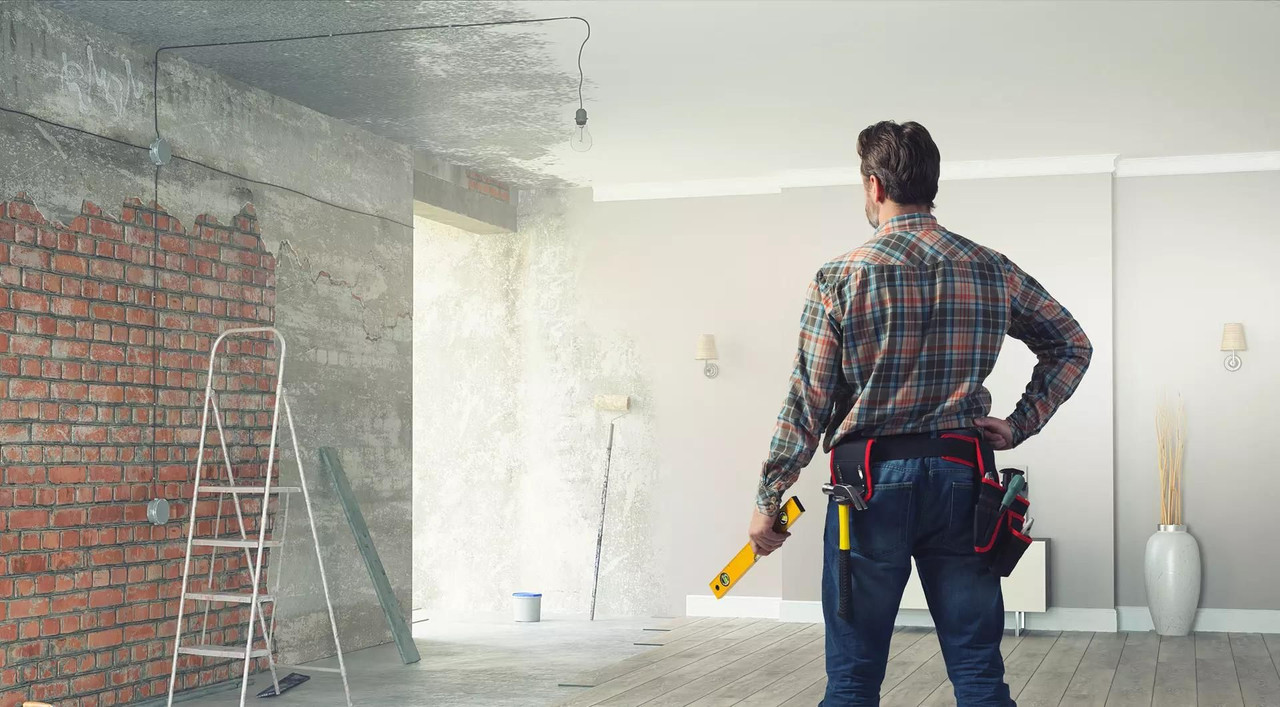When to Call a Qualified Bricklayer and General Contractor
by siteadmin

Bricklayers construct and repair walls, arches, chimneys, fireplaces, and other masonry structures in accordance with blueprints and specifications. They use a variety of construction materials and tools, including mortar, hammers, shovels, trowels, scales, power tools, and cement mixers. These professionals also work on larger projects such as lining industrial kilns and furnaces, and may even work in sewers. Alternatively, bricklayers may specialize in stone masonry.
Bricklayers are a type of general contractor specializing in the construction of walls using bricks. They can build garden walls, fences, and other structures such as driveways and walkways. Bricklayers are skilled craftsmen that need to be aware of health and safety issues on a job site. This includes working with heavy materials as well as being exposed to dust and dirt from the bricklaying process. The risk of injury for bricklayers includes low back pain due to repetitive lifting of heavy materials and blocking. This can cause muscle strain, ligament sprain, and bulging or herniated discs.
Garden Bricklaying
A garden brick wall provides a stylish and effective way to add privacy, security, or zoning to your outdoor spaces. It also helps to keep soil in place and prevents the spread of weeds. The cost of a garden wall depends on the size and thickness you want to build. If you need to hire a surveyor to determine your property line before constructing the wall, this can increase costs significantly.
A retaining wall is another common project for which you will need the services of a qualified and experienced bricklayer. These projects are usually quite complex and require expert knowledge of the structural capabilities of different types of masonry. A qualified and experienced bricklayer will be able to provide advice on the best type of retaining wall for your garden and will construct the structure to ensure it is stable and secure.
For a retaining wall on a slope, it is a good idea to build a form and stakes in the ground at each corner to help with the positioning of the blocks. This helps to ensure the walls are straight and the heights of each block course are accurate. A good way to check this is to locate the exact corner point by stretching lines from one of the corner forms to the other and seeing where they cross.
Garden bricklaying is a common service that bricklayers offer, as it requires the careful placement of large and small stones to create a garden wall or patio. A skilled bricklayer will be able to build a garden wall that is both structurally sound and aesthetically pleasing.
Bricklayers and stone masons are required to be physically fit and must enjoy working outdoors in all weather conditions. They must also be able to carry and handle heavy materials and machinery. They should also be able to work well in teams. They must be able to follow instructions and read and understand blueprints and specifications. They should also be able to mix mortar powder, sand, and clay correctly to obtain an acceptable consistency.
In addition to these basic requirements, garden bricklayers should have a strong interest in their work and must be self-motivated to perform demanding tasks without close supervision. They should be able to work quickly and accurately under pressure. They must also be able to make adjustments to their work based on changes in weather or ground conditions. They should also be able to recognize and identify the different types of bricks used in construction. They should also have a good eye for detail and be able to spot any issues with the quality of their work. This may include ensuring that all mortar joints are smooth and even. It is also important that they are able to complete their work in a safe manner, including wearing appropriate safety equipment and using proper work procedures.
Block Laying
Bricklayers work with traditional clay bricks, concrete blocks, and other materials in mortar to construct or repair walls, arches, chimneys, fireplaces, and similar structures. They also install firebrick in commercial and industrial furnaces, incinerators, and other equipment. They can also build retaining walls and other types of structures using masonry and precast stones.
The primary qualifications for a career as a bricklayer include a high school diploma or equivalent, and training on the job. Some college courses and apprenticeship programs are available, and these can help you get the skills you need for the job. You'll also need to be able to read blueprints and other construction plans. You'll need to understand the process of mixing mortar, and you'll need to use hand tools as well as power tools.
Block laying is another service that a bricklayer can provide, and it involves building up walls from large blocks of stone or concrete. These are usually placed on top of each other, and bricklayers must ensure that the mortar between each block is consistent to prevent the structure from collapsing under weather conditions or weight.
A career as a bricklayer can be rewarding if you enjoy working with your hands and have an eye for detail. If you're interested in this profession, consider taking a course or doing an apprenticeship with a reputable company. The requirements for apprenticeships vary by province or territory, but you can expect to spend three 12-month periods working as an apprentice and studying at a vocational school.
Once you've got the necessary training and skills, you'll need to obtain a building permit before starting work. You'll need to contact your state or provincial building commission for details about the specifics of obtaining a permit in your area.
As a bricklayer, you'll need to be comfortable carrying and lifting heavy materials. You'll also need to work in a variety of weather conditions. If you're not comfortable with these tasks, a different career may be better suited for you.
Rendering
Bricklaying is a physically demanding profession. Typical job duties include lifting, pushing, and pulling heavy materials all day. This can lead to muscle fatigue in the trunk and extremities. It also requires the ability to stand, squat and climb. The job can expose workers to extreme weather conditions and cramped workspaces. In addition, bricklayers must be able to operate hand and power tools that require good manual dexterity.
Those looking to become a bricklayer should have a high school diploma or certificate and take courses in shop, basic math, blueprint reading, and mechanical drawing. Additional qualifications include completing an apprenticeship and passing a test. Many tertiary institutions offer these courses to help students gain the practical skills and knowledge required for a career in this trade.
A bricklayer’s primary responsibilities are to construct buildings and other structures using brick, stone, and concrete. The job can involve installing windows, doors, and other building elements. In some cases, a Bricklayer may need to do plumbing and electrical work. A high level of attention to detail is required. The Bricklayer must ensure that the finished product is constructed with precision and craftsmanship that is appreciated by others.
In addition to working on construction sites, bricklayers often attend job meetings and workshops. These sessions provide important information on safety procedures, new technology, and changes in the industry. These sessions are also an excellent way for a bricklayer to learn more about his or her craft and network with other professionals in the industry.
The most common training method for a bricklayer is an apprenticeship program. Apprenticeships last three to four years and include both classroom studies and on-the-job training. They are typically overseen by a certified Bricklayer, known as a journeyperson. Apprentices earn a percentage of the journeyperson’s hourly rate and increase their pay as they advance through the program.
A skilled bricklayer is a valuable member of any construction team. He or she can contribute significantly to a project’s timeline, budget, and quality. As such, contractors should seek out Bricklayers who have a strong reputation for excellence and a willingness to work hard.
Rendering is a process where cement is applied to external and internal brick or concrete walls to achieve a smooth or deliberately textured surface. The process has been used for centuries in Europe, but it wasn’t popular in Australia until the 1950s. It is now a popular finishing technique for both modern and heritage homes, and it can be very effective in improving the look of a home.
It is critical for construction companies to ensure that their staff are trained in rendering works. If not, they could end up making costly mistakes that can impact the final finish of a house or commercial building. It is also essential that they check the specification to ensure that the system is being used properly. Most systems that need to be re-done are because a builder has not read the specification or understood how it is supposed to be applied.
Bricklayers must have a good understanding of the construction process and materials, as well as be able to read blueprints and plans. They must be able to work with precision and should be physically fit as the job involves working outside in all weathers. Those who are interested in becoming a bricklayer can either learn through on-the-job training or through completing an apprenticeship program.
https://www.bricklayerperthwa.com.au/
Bricklayers construct and repair walls, arches, chimneys, fireplaces, and other masonry structures in accordance with blueprints and specifications. They use a variety of construction materials and tools, including mortar, hammers, shovels, trowels, scales, power tools, and cement mixers. These professionals also work on larger projects such as lining industrial kilns and furnaces, and may even…
Recent Posts
- Kings Commercial Roofing LLC Elevates the Standard of Roofing Solutions in Missoula, MT
- Ripple Effect Culture Revolutionizes Leadership Development and Talent Management Consultancy
- Ripple Effect Culture Revolutionizes Leadership Development and Talent Management Consultancy
- Garage Builders Seattle: Revolutionizing Custom Garage Construction in Seattle
- Pro Mold Cleanup Roseville: Leading the Way in Professional Mold Removal
